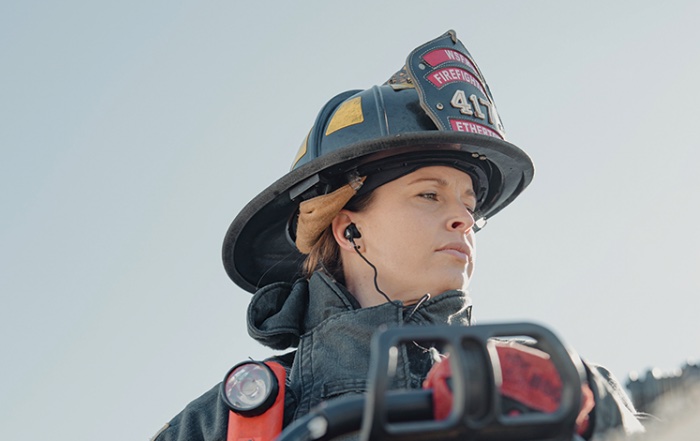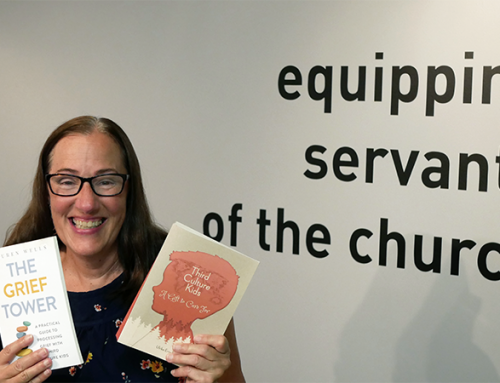The call came in: A massive building had collapsed with many trapped inside. The first responders arrived on the scene and could hear the cries for help. It was going to be a long day. They knew they were only hearing the cries of a few. Many more were buried beyond earshot. To get everyone out of the debris would require careful planning, teamwork and sacrifice. They would need to remove all the layers of debris safely and carefully.
This scenario is a picture of the realities — call them layers of debris — that confront all followers of Jesus today. The first layer, sin, has turned God’s perfect and pristine creation into a danger zone of debris and rubble. Since Adam chose to disobey God’s very clear and precise instructions, sin has separated us from God. Paul, in the first three chapters of the book of Romans, helps us understand that we are not just victims of another man’s choice, but our own sinful choices heap on more layers of debris.
Yet God, in His love, has a rescue plan. His Son has secured our rescue through His death, burial, resurrection and ascension. Paul makes it so very clear that this good news of what Jesus accomplished is the power of God for our rescue, for our salvation. Paul goes on to remind us that, as followers of Jesus, we have been commissioned to take that news to every person. This is so very important, because that which saves a person — faith in Christ — comes from hearing the good news of the person and work of Christ. Paul declares that his own personal mission is to keep pushing the message further and further out to where it had not yet been proclaimed. Paul was a man on a rescue mission. He kept pushing deeper and deeper into the debris, to get down to those crying for help.
Today, more than 6,000 people groups live buried deep inside the rubble and the debris, separated from the love of God. They often live in remote places, speak unwritten languages, fear evil spirits, and suffer disease and poverty. These factors stand between them and the message of Jesus. Missionaries have become adept at building airstrips, developing ways to access the isolated, sharpening techniques to learn languages, and finding ways to understand the intricate belief systems that block the Creator and His Rescuer. The gospel has penetrated more language groups in the past 100 years than in any previous generation!
Mission leaders of our day often say, “All the easy-to-reach places have been reached. That which is left in fulfilling the Great Commission are the places that are not easy.” Another has observed, “Many of the remaining unreached peoples of the world seemingly have been prepared against the gospel.”
I have lived the realities of those two statements! The challenge of people living in hard-to-reach places remains. Yet today a host of new challenges confront us. Some of the reasons they are hard to reach have nothing to do with jungles, mountains and rivers, but everything to do with religious extremism and political idealism. In many places of the world, the cost of being a Christian can be your life.
Another complex and challenging layer of debris is the confusion surrounding the person and work of Jesus Christ. Our enemy has twisted the name of Jesus among the world’s religions as another prophet in the line of prophets; or a folk hero who can be used by witch doctors to bring healing, a good harvest or protection from curses. This challenge will require the rescuer to exercise disciplined thought, loving patience and persistent teaching to bring a biblical understanding of who Jesus is and what He has accomplished.
Yet another layer of debris is instability. On a broad level, many face the instability of seeing their homelands invaded by raiders who exploit them and their lands. Another growing trend is the displacement of entire people groups from their homelands. Instability deeply impacts families and individuals.
A final layer of debris is one of the hardest to clear away: the reality that those we go to rescue may hate us. They may believe we are their enemies. This is nothing new. Ponder the plight of the Old Testament prophets and remember how our Saviour was received. Yet He came. He not only came, but He patiently loved them. He healed them. He consoled them. He lived among them. He spoke their language. He taught them, patiently. Some believed, but many didn’t.
As we move toward the unreached, it is more important than ever that we do so with the mentality of a first responder. We need to move with careful planning, committed teamwork and loving patience.
One huge advantage over the first responder in this world is that we go in complete dependence on Christ. We go determined and confident in His presence, as He promised to be with us until the end of the age.
The camera zooms in on her as she climbs from the debris. Her helmet is off-kilter, and her coat is stained, yet she emerges from the smoke carrying a survivor. Once clear of the rubble, she lifts the young boy onto a waiting gurney where others attend to his wounds. Her day has just started.
—Matt Arnold
Ethnos360 USA, Executive Leadership Team
Itinerant Missionary to the Tepehuan, Mexico






